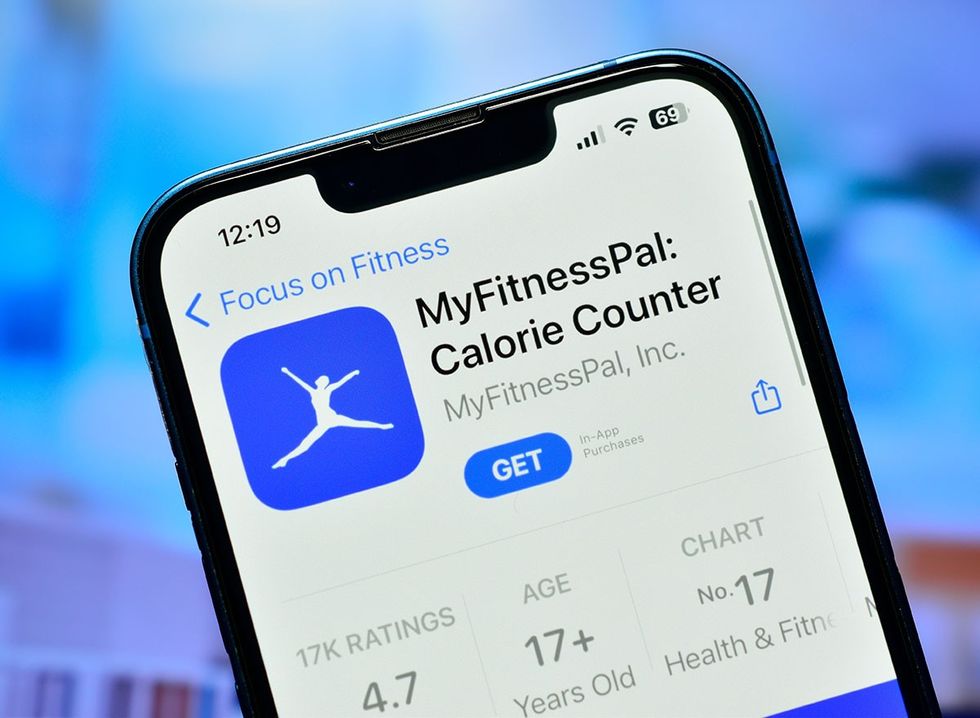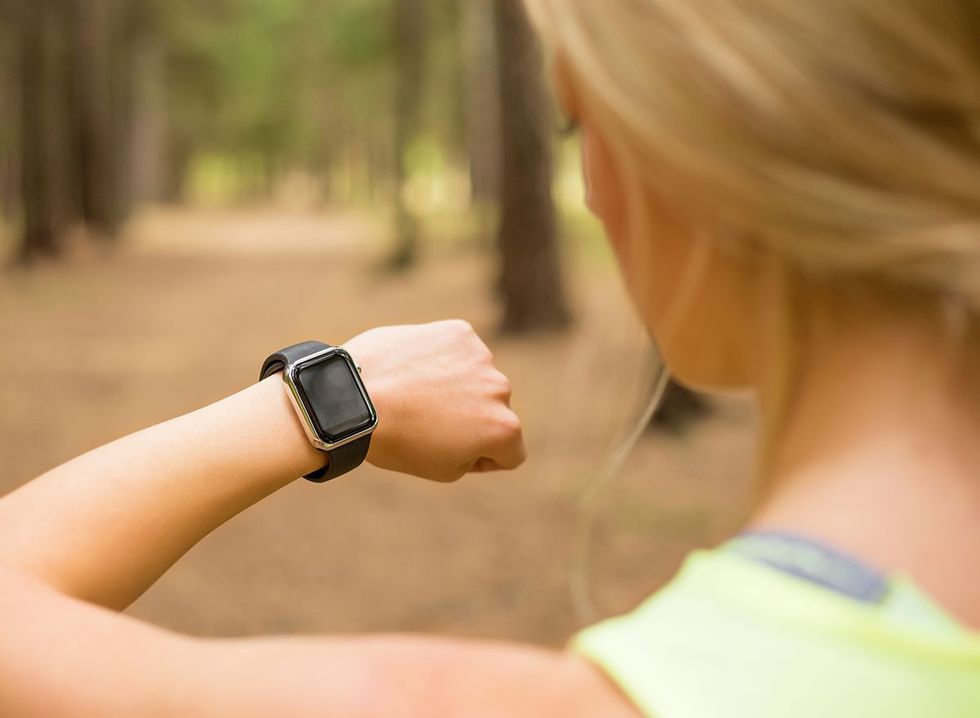Ozempic can be highly effective for weight loss, but there are definitely some unpleasant side effects to contend with, as the makers of the drug, Novo Nordisk, warn about. Nausea, constipation, and stomach pain are common, but avoiding certain foods and behaviors can make a difference. Here are 20 things to avoid while on Ozempic, to make the most of the medication and encourage healthy weight loss.
Too Much Sugar
 Shutterstock
ShutterstockAdded sugars, and sugary sodas, can spike blood sugar. Novo Nordisk, the maker of Ozempic and Wegovy, recommends that people avoid sugary foods while on the drug. “If you are taking medication to lower your sugar levels, it is advisable to avoid excess sugar consumption,” Dr. Dina Peralta-Reich, MD, FAAP, FOMA, tells Parade. “Failure to watch what you eat and keep your sugar levels elevated may prevent you from seeing the intended results of the medication,” she shares.”
Ultra-Processed Foods
 2. Processed FoodsShutterstock
2. Processed FoodsShutterstockUltra-processed foods can make side effects of Ozempic worse. “This medication slows down gastric emptying and the dense food will move much slower through your intestines, which can make you feel sick [and experience] nausea, vomiting, reflux and abdominal pain,” says Dr. Peralta-Reich. “Someone may not see the results they're looking for either.”
High-Fat Foods
 Shutterstock
ShutterstockFoods high in saturated and trans fats can make side effects of Ozempic worse. Some people complain of diarrhea and stomach pains. “I’ve seen an almost dumping syndrome-like response in people taking GLP-1s when they eat simple carbohydrates and high-fat foods,” Dr. Shauna Levy, a specialist in obesity medicine and medical director of the Tulane Bariatric and Weight Loss Center in New Orleans, tells TODAY.
Sitting All Day
 Shutterstock/Prostock-studio
Shutterstock/Prostock-studioStaying active is important while on Ozempic. Regular exercise is not only important for health, it can prevent muscle loss. The goal should be fat loss, and getting strong.
Not Hydrating
 Shutterstock
ShutterstockDon’t forget to drink your water and stay hydrated. Drinking water can help with side effects of Ozempic, especially nausea. Ozempic.com recommends drinking clear or ice-cold drinks to combat any nausea and discomfort.
Too Much Alcohol
 Pro TipsShutterstock
Pro TipsShutterstockAvoid alcohol on Ozempic, experts advice. “One, it’s just empty calories. Two, it tends to make people make decisions that they otherwise might not make,” says Dr. Levy. “It could increase hunger, and the whole point of GLP-1s, or at least one of the points, is to decrease hunger. So it sort of negates their purpose.”
Be Mindful of Portions
 Shutterstock
ShutterstockOzempic keeps food in the stomach longer, so bigger portions can cause discomfort. “Understanding that overall portions are smaller on these medications, we want to optimize nutritional intake and consume the ‘best’ calories available,” obesity medicine physician Dr. Christopher McGowan tells TODAY. “The focus should be on lean protein, healthy fruits and vegetables, adequate fiber and adequate fluid intake.”
Be Mindful of Coffee
 Shutterstock
Shutterstock“Overall, coffee is perfectly fine to consume, but for some individuals can lead to stomach irritation,” says Dr. McGowan. “Therefore, I recommend drinking coffee in moderation, such as one to two cups a day. Patients should also be mindful of calorie-dense additives, like cream and sugar.”
Don’t Skip Meals
 Shutterstock
ShutterstockIt’s easy to skip meals when on Ozempic, but make sure you’re getting enough nutrition. Some people have even become malnourished as a result of not eating. “It’s never healthy to not eat,” Dr. Hwang said. Dr. Janice Jin Hwang, the division chief of endocrinology and metabolism at the University of North Carolina School of Medicine tells the New York Times.
Don’t Consider It a Quick Fix
 Shutterstock
ShutterstockOzempic should be part of a long-term health plan. “It’s important to note that if you start taking either of these drugs for weight loss, your body may get used to it, establishing a new normal,” says UC Davis Health. This can cause your weight to plateau. Research has shown that if you stop taking Ozempic (or Wegovy), it's likely that you will gain back the weight you lost.”
Same Unhealthy Lifestyle
 Don’t Drink as Much AlcoholShutterstock
Don’t Drink as Much AlcoholShutterstockDon’t continue an unhealthy diet and assume it’s ok because of Ozempic. “You can likely lose weight on semaglutide medications without changing your diet and activity behaviors, but these lifestyle changes will make the treatment more effective,” Richard Siegel, MD, tells the Friedman School of Nutrition Science and Policy. “Also, we don’t know if weight loss will have the same health benefits if one does not change their behaviors.”
Protect Your Health
 Most Women on GLP-1s Are Making a Few Common MistakesShutterstock
Most Women on GLP-1s Are Making a Few Common MistakesShutterstockSome doctors warn that taking Ozempic can make people complacent about their health. “It is important to remember that obesity is heterogenous, chronic and complex,” Vijaya Surampudi, MD, physician nutrition specialist and assistant director of the UCLA Weight Management Program (RFO), tells UCLA Health. “There is no cure for obesity. It requires lifelong treatment that’s not one size fits all.”
Carbonated Beverages
 Soda and Sugary DrinksShutterstock
Soda and Sugary DrinksShutterstockOzempic slows down digestion, keeping food in your stomach for longer. This causes a feeling of fullness and some unpleasant side effects for some people like belching. Stick to still water as carbonated beverages can make stomach issues worse.
Long-Term Goals
 Shutterstock
ShutterstockIf you plan on only taking Ozempic or Wegovy for a short while, it’s likely your weight will come back on. “In one trial of Wegovy, people regained about two-thirds of the weight lost within a year of stopping the drug,” Dr. Siegel explains. “Lifestyle changes can help maintain weight loss, but it’s unusual to maintain all weight loss once you stop any weight loss medication.”
Refined Carbohydrates
 Eat BreakfastShutterstock
Eat BreakfastShutterstockRefined carbohydrates tend to spike blood sugar, which is exactly what Ozempic is meant to treat. You don’t have to cut these foods out entirely, but be aware it makes it harder for Ozempic to do its job. “Foods like white bread, white rice, crackers, or even cereals may seem like better choices than foods with added sugar, but refined carbohydrates still metabolize as glucose in the body,” Christine Fallabel, MPH, tells Diabetes Strong.
Watch Out For High Fiber
 And Improve Insulin SensitivityShutterstock
And Improve Insulin SensitivityShutterstockWhile many green vegetables are low GI, be careful about the fiber. “If you’re not used to eating a lot of vegetables, you may experience side effects such as bloating and gas, until your body has acclimated to eating a more fiber-filled diet,” Fallabel says.
Junk Food
 Belly Flab Strip Tip: Sugar and Fat Calories Leave Its Mark on Your BodyShutterstock
Belly Flab Strip Tip: Sugar and Fat Calories Leave Its Mark on Your BodyShutterstockJunk food—which you should be avoiding either way for weight loss purposes—often contains high levels of sodium. “Ultra-processed foods are high in sodium, saturated fats and added sugars, which contribute to a range of health problems,” Elizabeth Ko, MD, and Eve Glazier, MD, tell UCLA Health. These include an increased risk of Type 2 diabetes, cardiovascular disease, lowered immune response, certain cancers, dementia and early death.”
Spicy Foods
 Shutterstock
ShutterstockOzempic can cause acid reflux due to slow digestion. Spicy foods can make acid reflux worse, experts warn. However, if acid reflux is not an issue, people can probably enjoy spicy foods if they wish.
Always See a Medical Professional
 The Drugs Mimic the GLP-1 Hormone Naturally Produced by the BodyShutterstock
The Drugs Mimic the GLP-1 Hormone Naturally Produced by the BodyShutterstockOzempic should only be prescribed by a medical professional. “Typically, I prescribe Ozempic for diabetes and have more often prescribed Wegovy for weight loss,” endocrinologist Alyssa Dominguez, MD, tells Keck Medicine. “I have used Ozempic, sometimes, off-label for weight loss, though getting insurance approval for that can be challenging.”
Fried Foods
 3. Deep-Fried ItemsShutterstock
3. Deep-Fried ItemsShutterstockFried, greasy foods can make Ozempic stomach issues worse. “Foods high in fat can make digestive side effects worse. Since food hangs around longer in the stomach, it has more time to cause problems,” Sarah Bullard, MS, RD, LD, tells Signos. “Some studies have shown that consuming too much fat can increase symptoms of fullness, nausea, and bloating in individuals with digestive issues and heartburn. Reducing fat intake resolved symptoms.”
💪🔥Body Booster: A whole foods Mediterranean diet is ideal while taking Ozempic.





















 Shutterstock
Shutterstock Shutterstock
Shutterstock Shutterstock
Shutterstock Shutterstock
Shutterstock Shutterstock
Shutterstock Shutterstock
Shutterstock Shutterstock
Shutterstock


 Alissa_Brecht_alissabrechtrd/Instagram
Alissa_Brecht_alissabrechtrd/Instagram Shutterstock
Shutterstock Shutterstock
Shutterstock Shutterstock
Shutterstock Alissa_Brecht_alissabrechtrd/Instagram
Alissa_Brecht_alissabrechtrd/Instagram Diet Diva/Facebook
Diet Diva/Facebook

 I'm a Nutritionist and These 9 High-Protein Snacks Keep My Clients Full While Losing 50 Pounds
I'm a Nutritionist and These 9 High-Protein Snacks Keep My Clients Full While Losing 50 Pounds
 Shutterstock
Shutterstock 2. Processed FoodsShutterstock
2. Processed FoodsShutterstock Shutterstock
Shutterstock Shutterstock/Prostock-studio
Shutterstock/Prostock-studio Shutterstock
Shutterstock Pro TipsShutterstock
Pro TipsShutterstock Shutterstock
Shutterstock Shutterstock
Shutterstock Shutterstock
Shutterstock Shutterstock
Shutterstock Don’t Drink as Much AlcoholShutterstock
Don’t Drink as Much AlcoholShutterstock Most Women on GLP-1s Are Making a Few Common MistakesShutterstock
Most Women on GLP-1s Are Making a Few Common MistakesShutterstock Soda and Sugary DrinksShutterstock
Soda and Sugary DrinksShutterstock Shutterstock
Shutterstock Eat BreakfastShutterstock
Eat BreakfastShutterstock And Improve Insulin SensitivityShutterstock
And Improve Insulin SensitivityShutterstock Belly Flab Strip Tip: Sugar and Fat Calories Leave Its Mark on Your BodyShutterstock
Belly Flab Strip Tip: Sugar and Fat Calories Leave Its Mark on Your BodyShutterstock Shutterstock
Shutterstock The Drugs Mimic the GLP-1 Hormone Naturally Produced by the BodyShutterstock
The Drugs Mimic the GLP-1 Hormone Naturally Produced by the BodyShutterstock 3. Deep-Fried ItemsShutterstock
3. Deep-Fried ItemsShutterstock